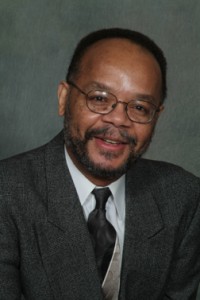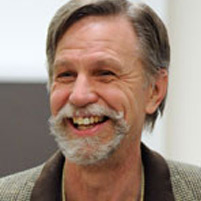Jeffrey Shook from the University of Pittsburgh will be on campus next week to talk about his work on juveniles in the criminal justice system. The talk, co-sponsored with Lawrence Scholars in Law program, will be Thursday, January 16 at 7 p.m. in the Warch Campus Cinema. The talk title is “From Roper to Miller: Legal and Policy Implications of Recent Supreme Court Decisions on the Punishment of Juveniles.”
Professor Shook is an outstanding scholar and also committed to service, having won the Chancellor’s Distinguished Public Service Award from the University of Pittsburgh in 2013.
He is a man of many talents, after received his degree in economics (!) from Grinnell College, he went on to earn a law degree from American University and a Ph.D. in social work and sociology from the University of Michigan. Acording to his bio:
His research examines the intersection of law, policy, and practice in the lives of children and youth, focusing on the transfer of juveniles to the adult criminal justice system, the administration of juvenile justice, the movement of youth across child and youth serving systems, and the experiences of youth “aging out” of the child welfare system. Jeff also is involved in efforts to end the sentencing of juveniles to life sentences without the opportunity for parole both in Pennsylvania and nationally.
He is a very busy guy that works on some fascinating issues, as this selection of his publications attests:
Visser, Joanna and Jeffrey J. Shook. 2013. The Supreme Court’s emerging jurisprudence on the punishment of juveniles. Court Review Journal, 49(24-39).
Shook, Jeffrey J., Sara Goodkind, Ryan Pohlig, Lisa Schelbe, David Herring, and Kevin Kim. 2011. Patterns of mental health, substance abuse, and justice system involvement among youth aging out of the child welfare system. American Journal of Orthopsychiatry, 81(420-432).
Shook, Jeffrey J., Michael G. Vaughn, Sara Goodkind, and Heath Johnson. 2011. An empirical portrait of youthful offenders who sell drugs. Journal of Criminal Justice,33(224-231).
Shook, Jeffrey J. 2011. Prosecutorial decisions to treat juveniles as adults: Intersections of individual and contextual characteristics. Criminal Law Bulletin,47(341-387).
Shook, Jeffrey J. and Sara Goodkind. 2009. Racial disproportionality in juvenile justice: The interaction of race and geography in pretrial detention for violent and serious offenders. Race and Social Problems, 1(257-66).
Shook, Jeffrey J. and Rosemary C. Sarri. 2008. Trends in the commitment of juvenile offenders to adult prisons: Toward an increased willingness to treat juveniles as adults? Wayne Law Review, 54(1725-65).
See you Thursday.

 Mark Montgomery and Irene “Tinker” Powell will be on campus this week to deliver the next Economics Colloquium address, “Baby Markets: Thinking the Unthinkable in International Adoption.” The talk is Thursday at 4:30 in Steitz 102. This is quite a topic, where the rules of the game have pretty significant distributional consequences, and it will be interesting to see how this sorts out.
Mark Montgomery and Irene “Tinker” Powell will be on campus this week to deliver the next Economics Colloquium address, “Baby Markets: Thinking the Unthinkable in International Adoption.” The talk is Thursday at 4:30 in Steitz 102. This is quite a topic, where the rules of the game have pretty significant distributional consequences, and it will be interesting to see how this sorts out. Doug Allen from Simon Fraser University
Doug Allen from Simon Fraser University

 John Maynard Keynes is the father of modern macroeconomics, and Keynesian economics and the welfare state have been inextricably linked in the public mind since the postwar era. Indeed, he is widely believed to have provided the analytical, economic underpinnings for the welfare state. Bradley Bateman, a recognized scholar of Keynsian thought, examines Keynes’s contributions with the backdrop of the recent financial calamities and the widespread fiscal crises of state and national governments.
John Maynard Keynes is the father of modern macroeconomics, and Keynesian economics and the welfare state have been inextricably linked in the public mind since the postwar era. Indeed, he is widely believed to have provided the analytical, economic underpinnings for the welfare state. Bradley Bateman, a recognized scholar of Keynsian thought, examines Keynes’s contributions with the backdrop of the recent financial calamities and the widespread fiscal crises of state and national governments.

